Nature Is Climate
At Bio4Climate, we contribute to planetary regeneration through research, education, collaboration and action to restore essential global biodiversity . . . and create a new climate story.
Biodiversity loss is not just the result of climate change, it is a primary driver of climate change. Only solutions that prioritize this web of life will create a truly livable climate for all.
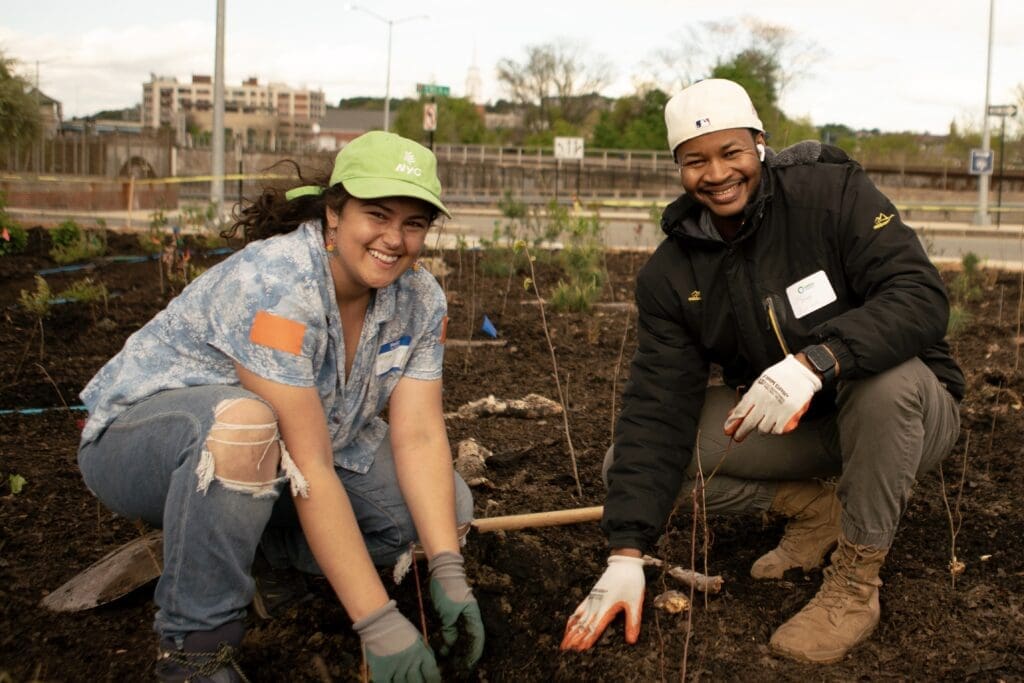
Upcoming Events and Courses
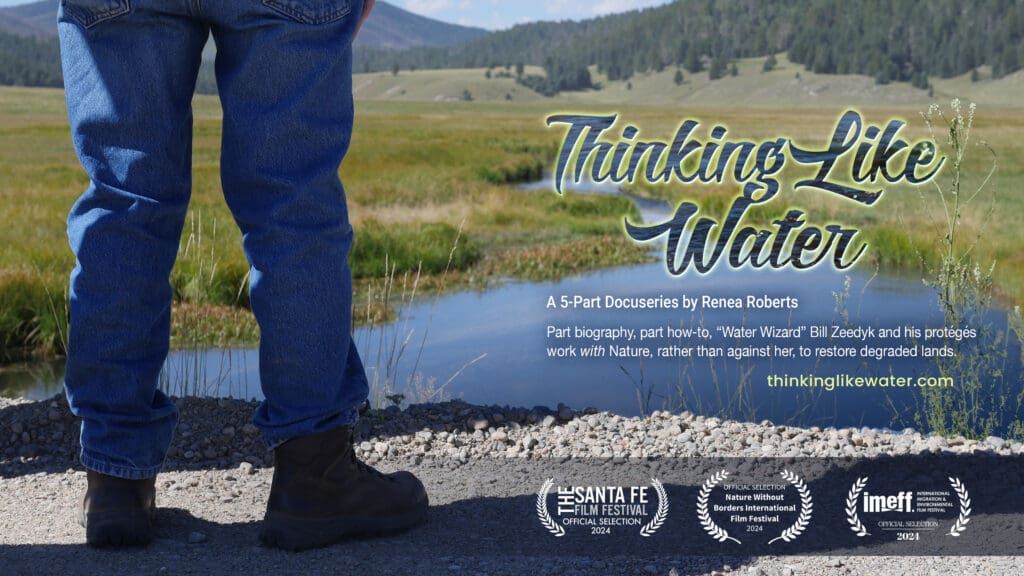
The Bio4Climate Film Club Presents Thinking Like Water
January 20 – February 17
Tuesdays at 7:30 pm ET / 5:30 pm MT
Join us this January to be part of a very special screening of Thinking Like Water, a five-part docuseries which follows restoration pioneer Bill Zeedyk and his collaborators, as they transform degraded watersheds into more resilient ecosystems – girding against the ravages of drought and climate change.
The docuseries and conversations with filmmaker Renea Roberts and other featured speakers begin on January 20 and continue for five Tuesdays. Registrants can choose how they’d like to participate—watch each documentary episode in advance and join the live conversation, or come together for a weekly viewing party with discussion shortly after. Each session will also make space to connect with others in your watershed and discover ways to learn more about the local waterways that connect us.
Registration is now open! Reduced rates and scholarships are available.
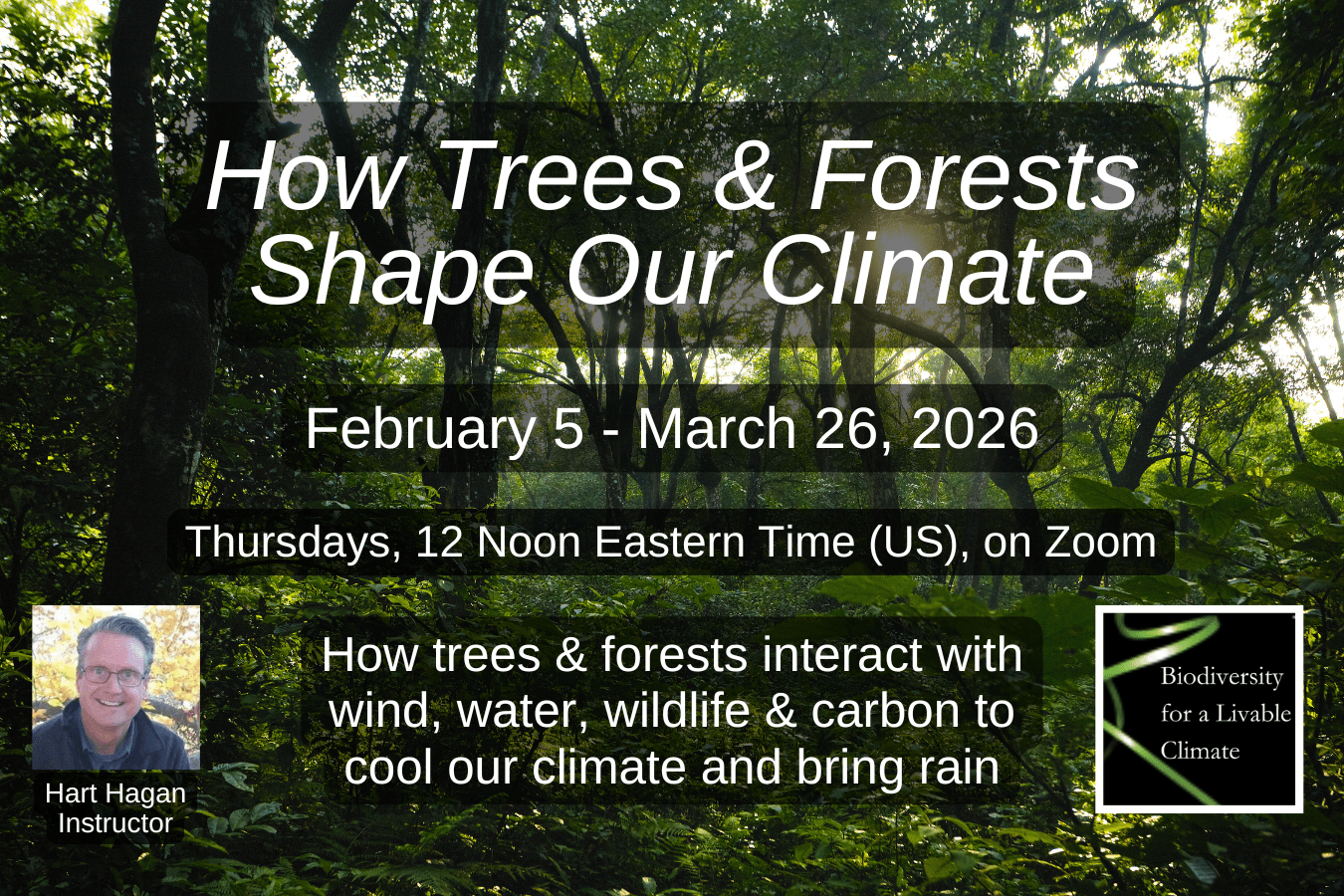
How Trees & Forests Shape Our Climate
February 5 – March 26, 2026
Thursdays — 12:00 Noon ET
Recently, Brazilian forest advocate Antonio Nobre wrote: “Deforestation is climate action’s blind spot.”
In this course, you will examine the ways in which trees and forests benefit our climate, while preventing flooding and drought and also providing habitat for a myriad of wildlife species. Hart brings his unique perspective and values to an exploration of the false notions, narratives and mythologies that are used to justify cutting down trees.
You will also engage with a range of highly qualified experts, and we will ask and answer questions like these:
- What are the mechanisms within forests that cool our climate—through shade, water evaporation, water cycling, and sponge-like absorption that prevents floods, droughts, wildfires and extreme heat?
- What role do microbes, fungi and wild species play in the climate-regulating mechanisms of a forest?
- What is the difference between a forest and a tree plantation?
- What is the extent of logging in North America?
- How do we choose between a forest and a solar array?
and many others…
Restore Nature – Cool the Planet
Only nature has the ability to both cool the planet and lower greenhouse gas levels. Our planet is already too hot and too dry to maintain a stable climate and support life. These 4 Climate Keys are interlocking pieces of the cycles we must repair to quickly stop warming and start cooling the planet.
Cool
Healthy ecosystems full of biodiversity create direct cooling effects for our hot planet. More Nature = Less Heat.
Hydrate
Keeping water in the ground supports plants, crops and people. Beavers, insects and microbes are part of the Infiltration Team
Plant
Planting for biodiversity creates healthy ecosystems. Forests sequester carbon and use water vapor to move heat away from the Earth
protect
Indigenous leadership and wisdom can help us. Stop deforestation, industrial ag, mining, and pollution that kill off biodiversity.
Replace with regenerative practices
Q:
What about atmospheric carbon dioxide – you know – the greenhouse effect?
A:
It’s an important part of the story, but not the whole story. Learn more.
Who We Are
Bio4Climate Tells the Hidden Stories
For nearly a decade we have looked behind, around, and under the prevailing climate narratives for the missing pieces of the puzzle. We continue to bring you authors, ecorestoration specialists, and scientists from around the world who explore the interlocking systems that create a livable climate.
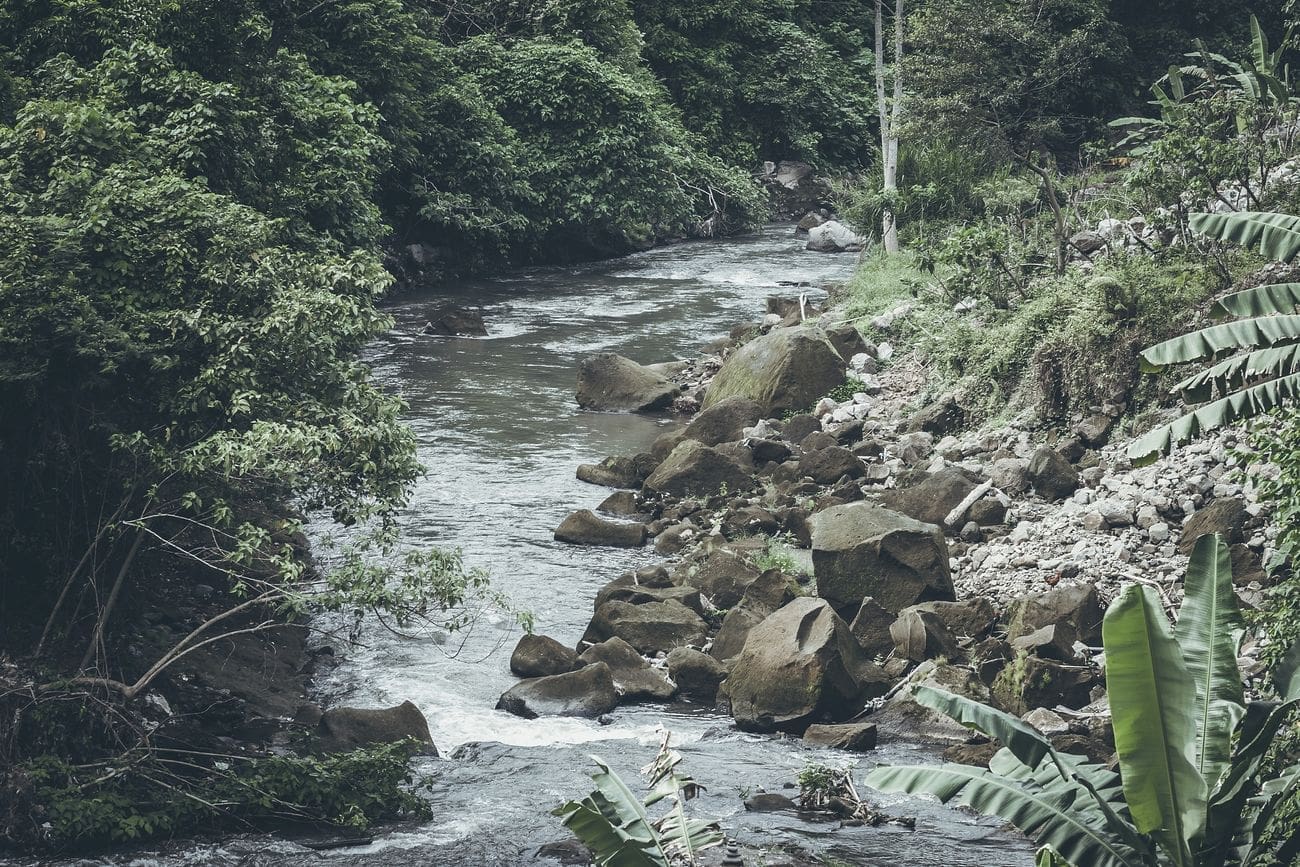
Stay on Top of the
Climate Conversation
Through education, policy and outreach, we promote the great potential of inexpensive, low-tech and powerful nature solutions to the biodiversity and climate crises, and work to inspire urgent action and widespread implementation of many regenerative practices.
This Week
News and Insights
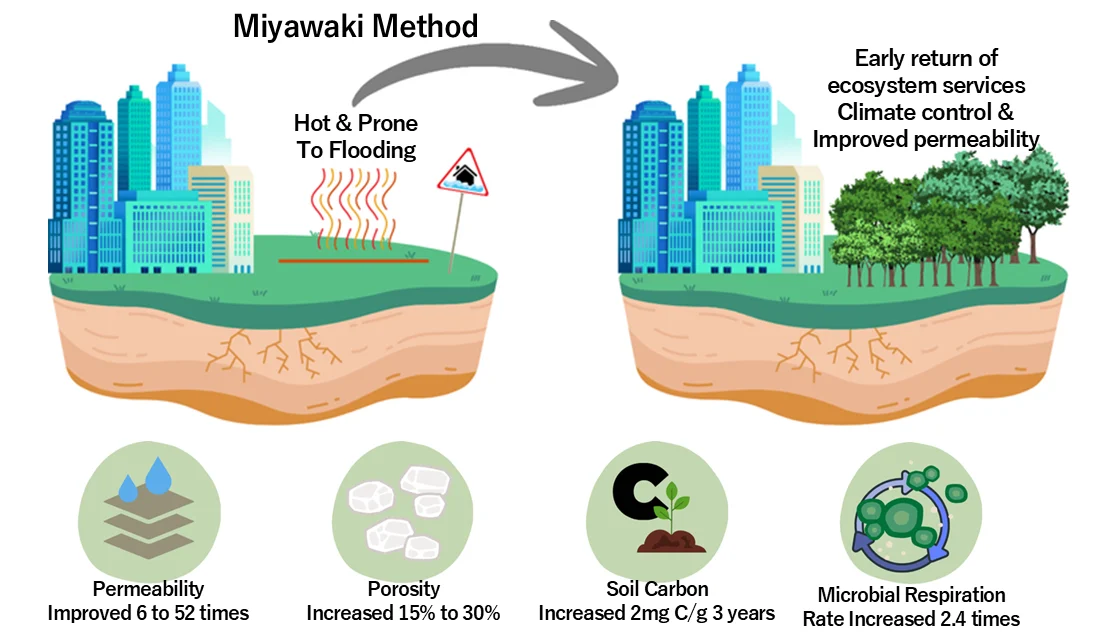
New Study Links Miyawaki Forests to Early Soil Recovery
Since 2021, Bio4Climate has supported eight miniforests across Massachusetts, where restoring degraded soil is a central goal alongside planting diverse native species.
We’re excited to see new research—The Root of Urban Renewal: Linking Miyawaki Afforestation to Soil Recovery—examining early soil health changes in three of Groundwork Elizabeth’s miniforests in New Jersey. Led by Andres Ospina Parra (Rutgers–Newark) with Daniela Shebitz (Kean University) and John Evangelista (Groundwork Elizabeth), the study offers some of the first U.S.-based evidence that Miyawaki microforests can rapidly initiate below-ground recovery, showing gains in soil permeability, carbon, and microbial activity within just one to three years—even in highly degraded urban soils.
As the authors note, these changes reflect early signs of soil self-organization, where interactions among roots, microbes, and organic matter begin building long-term resilience.
Studies like this help illuminate what becomes possible when we create the right conditions for urban sites to recover—and we’re excited to keep learning as our own miniforests grow and mature.
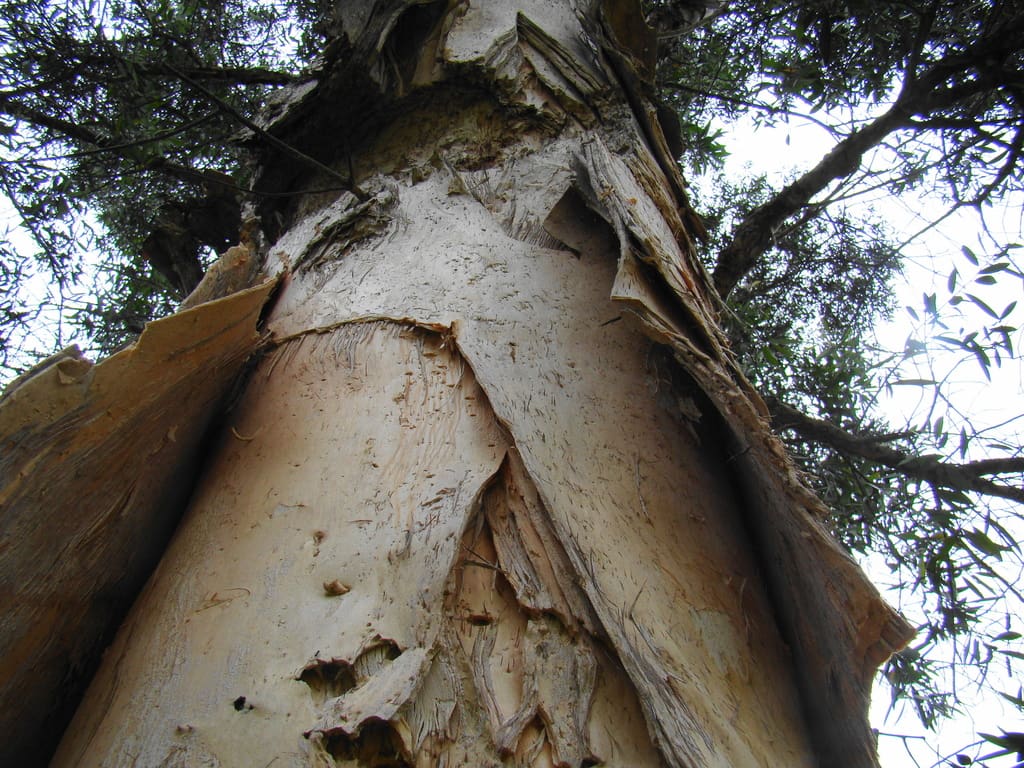
Tree Bark Identified as Potential Climate Solution
A team of Australian researchers spent five years analyzing the microbiomes of tree bark from eight species of Australian trees. They found that bacteria present on the bark were able to consume gases, including methane, hydrogen, and carbon monoxide.
“While people have talked about addressing climate change in part by planting trees, the discovery of this hidden world of bark adds a whole new dimension. It could also inform people’s calculations about which trees are the most potent climate warriors.”
Events and Community
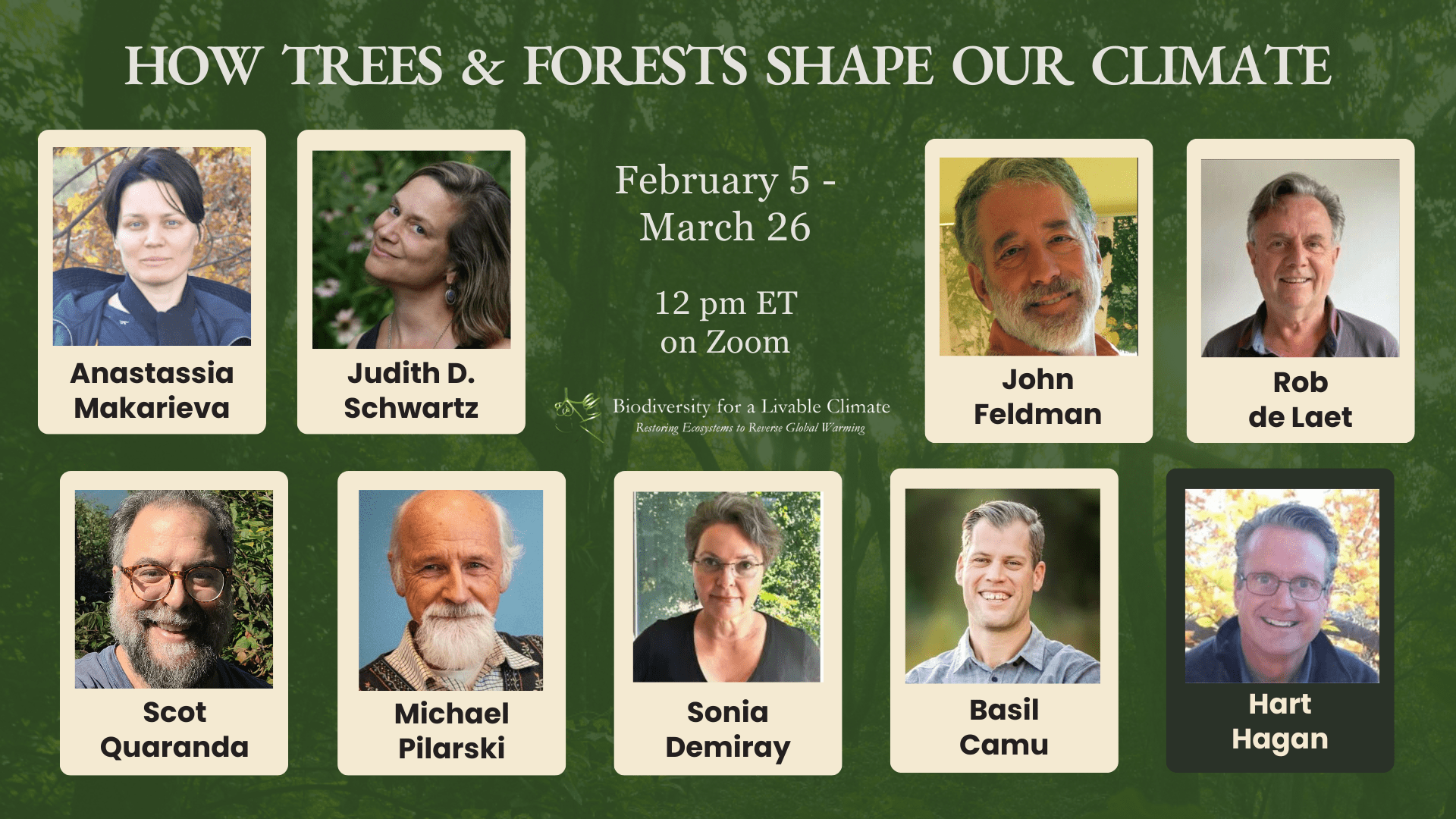
Last Chance to Register for How Trees & Forests Shape Our Climate!
Registration is open through February 12 for our eight-week course exploring how living forests regulate climate through water cycles, biodiversity, and ecosystem processes.
Don’t miss this rare opportunity to talk live with these leading scientists, authors, filmmakers and practitioners and get your questions answered.
Be part of a community of fellow learners, each on a journey of understanding how living systems work to cool the temperatures and mitigate climate impacts. Recordings made available weekly. Private email group provides additional opportunities for rich conversations and deeper learning.
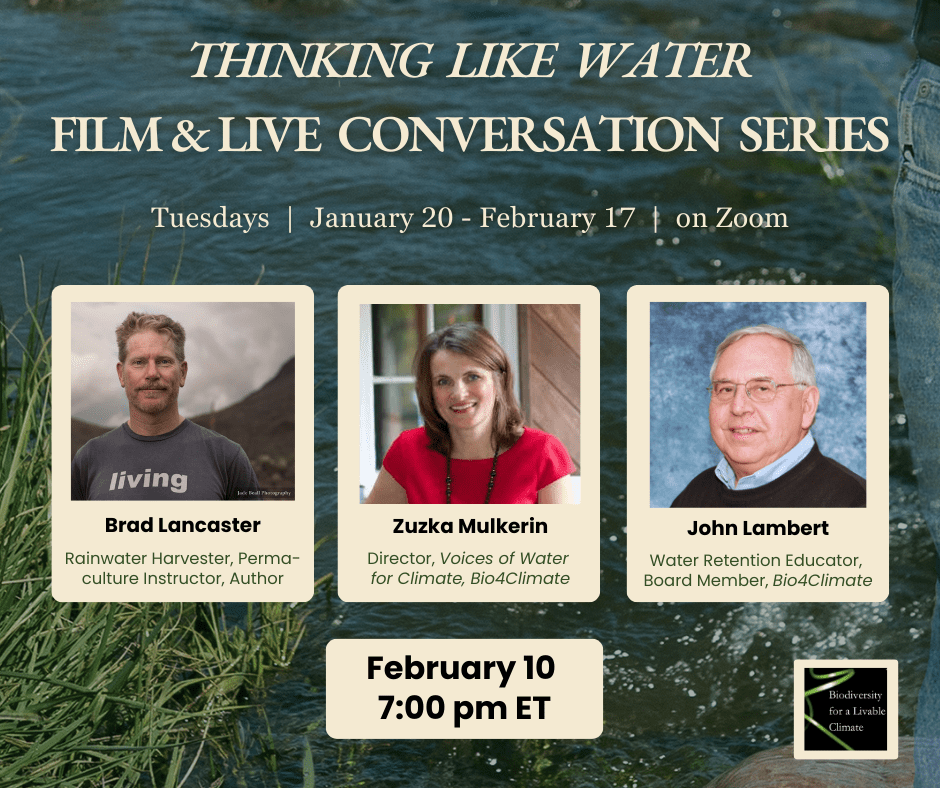
Thinking Like Water — Docuseries & Live Conversations | Episode 4
Join us on February 10 for a live conversation with three trailblazers who have been rethinking water and climate from the ground up.
Hear from Brad Lancaster, rainwater harvester and featured expert in Thinking Like Water Episode 4, as he shares his bold, low-cost strategies to capture rainwater runoff, reduce flooding and drought, and build local water security in urban, suburban, and rural communities.
You’ll also hear from Zuzka Mulkerin and John Lambert of Bio4Climate’s Voices of Water initiative, who will delve into the New Water Paradigm developed by hydrologist Dr. Michal Kravčík. This groundbreaking approach to rehydrate landscapes and restore the small water cycle has reshaped our understanding of water’s role in climate change for more than 30 years.
Together, they’ll reveal how working with water can restore the land, our waterways and climate resilience right where we live.
Miyawaki Forest Program Update
An intergenerational miniforest now grows in Belmont, MA!
Last year, alongside organizing and hosting the inaugural Northeast Miniforest Summit to support knowledge-sharing and connection, our Miyawaki Forest Program reached an important milestone: planting a 3,000-square-foot miniforest at Belmont High School together with the Miyawaki Forest Action Belmont (MFAB) group and students from the school’s Climate Action Club (CAC).
On October 4, 2025, nearly 275 Belmont volunteers—spanning generations—came together to plant 1,144 native trees and shrubs across 32 species, jump-starting soil life with leaf mulch and compost tea and bringing a living classroom rooted in collective care to life.
What makes this miniforest especially meaningful is the way it was imagined, organized, and stewarded by the community and students—amplifying a web of relationships and a shared sense of care and responsibility to the ecology of place and to one another, while restoring biodiversity and ecological function.
To many more community-initiated, student-powered miniforests—built by many hands and grown for many futures.
With deep gratitude to everyone whose time, support, and care made this possible—and to those stewarding it forward.
Learn more about how this miniforest came to life.
A Moment For Art
We are delighted to share a piece of artwork from one of our community members, Ann Barrett! Ann Barrett works in watercolor and oil on a variety of supports. With roots in observational drawing, her imagery fluctuates between figuration and abstraction, and celebrates human interconnectedness with all of life.
Ann is a six-year member of Jim Laurie’s symbiosis team, a Biodiversity for a Livable Climate financial supporter, and on the board of directors of East Quabbin Land Trust in Hardwick, MA. This is the third piece of Ann’s we’ve shared recently, and we are grateful for her artwork!
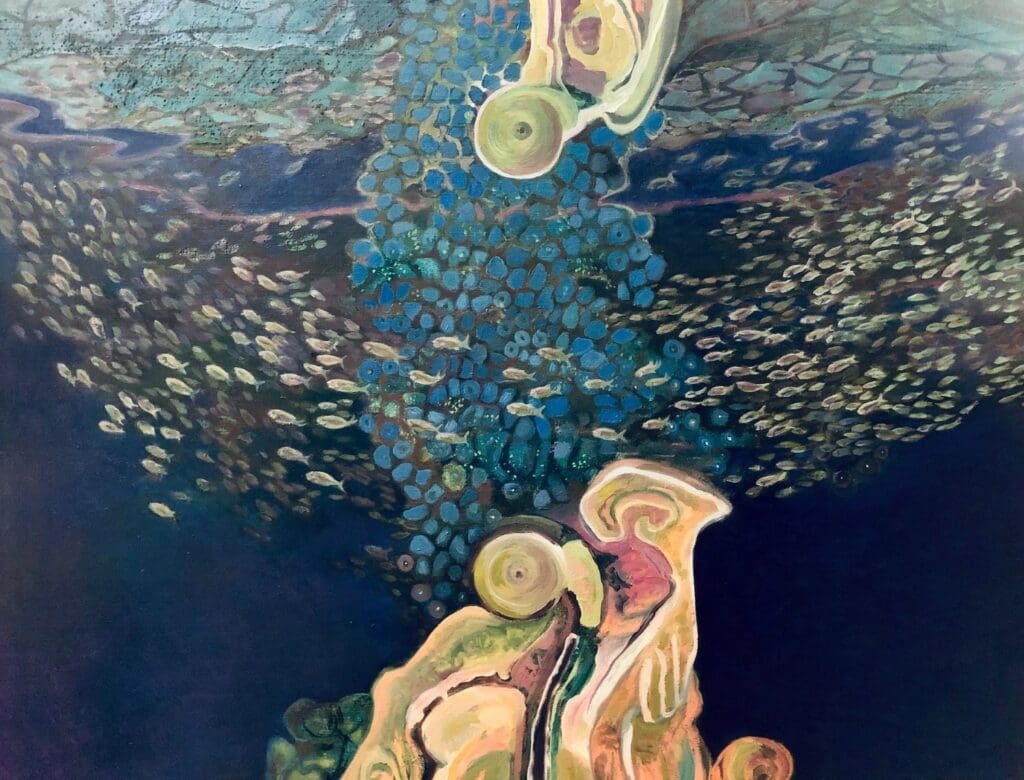
Share Your Art!
If you have artwork you’d like to have showcased in this newsletter, please respond to this email to get in touch with our team. We are accepting submissions for artwork, which can be anything from a poem to a painting—use your imagination! We are also accepting book recommendations.
What’s Your Favorite Creature?
Lastly, we want to invite you to write your very own Featured Creature article. If you are passionate about a specific creature that you have a personal connection to, we want to hear from you!
We look forward to receiving your artwork, book recommendations, and Featured Creature proposals.
The 2025 Northeast Miniforest Summit featured more than a dozen speakers across two virtual half-days and an in-person bus tour, bringing together practitioners, researchers, and leaders from diverse fields to unpack the Miyawaki Method from root to canopy.
Recordings Are Now Live! Learn more and stay connected at miniforests.bio4climate.org
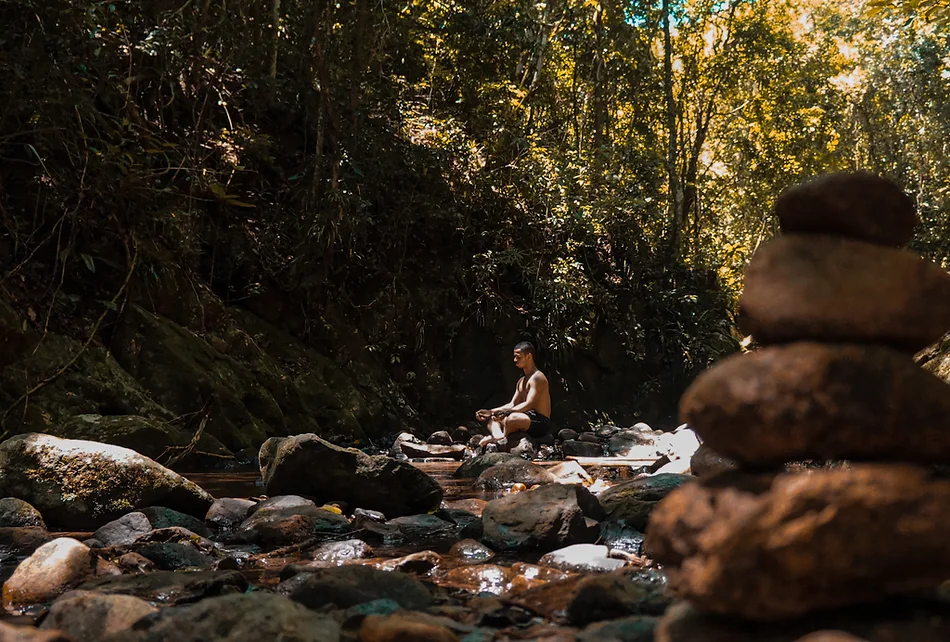
Tell nature’s climate story, the story of connection and life.
― Beck Mordini
Transformation in Mexico
Eco Restoration Works
Watch what happens! A degraded landscape in Mexico is transformed by regenerative management. It took only two years (the arrow points to the same tree).

